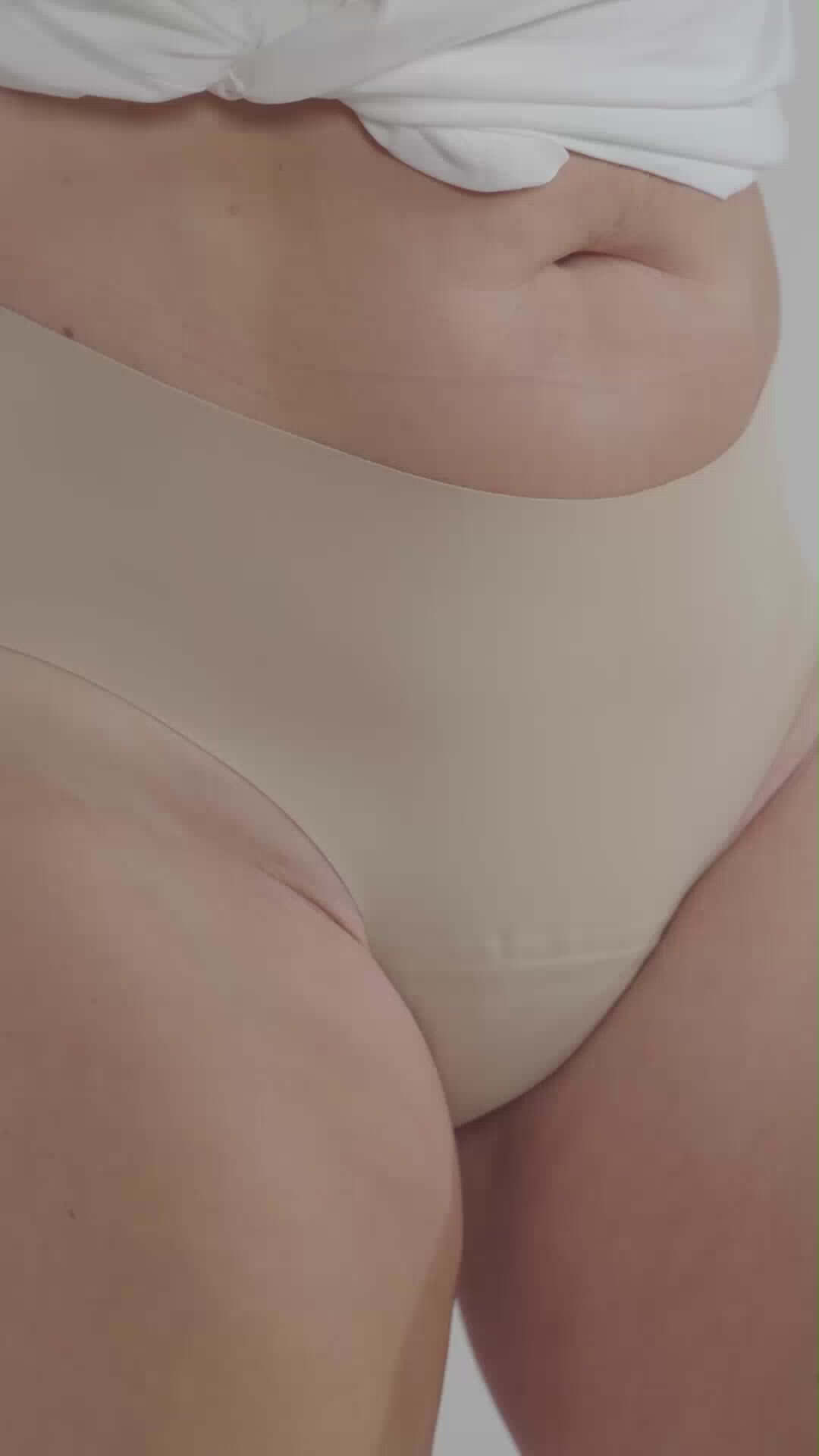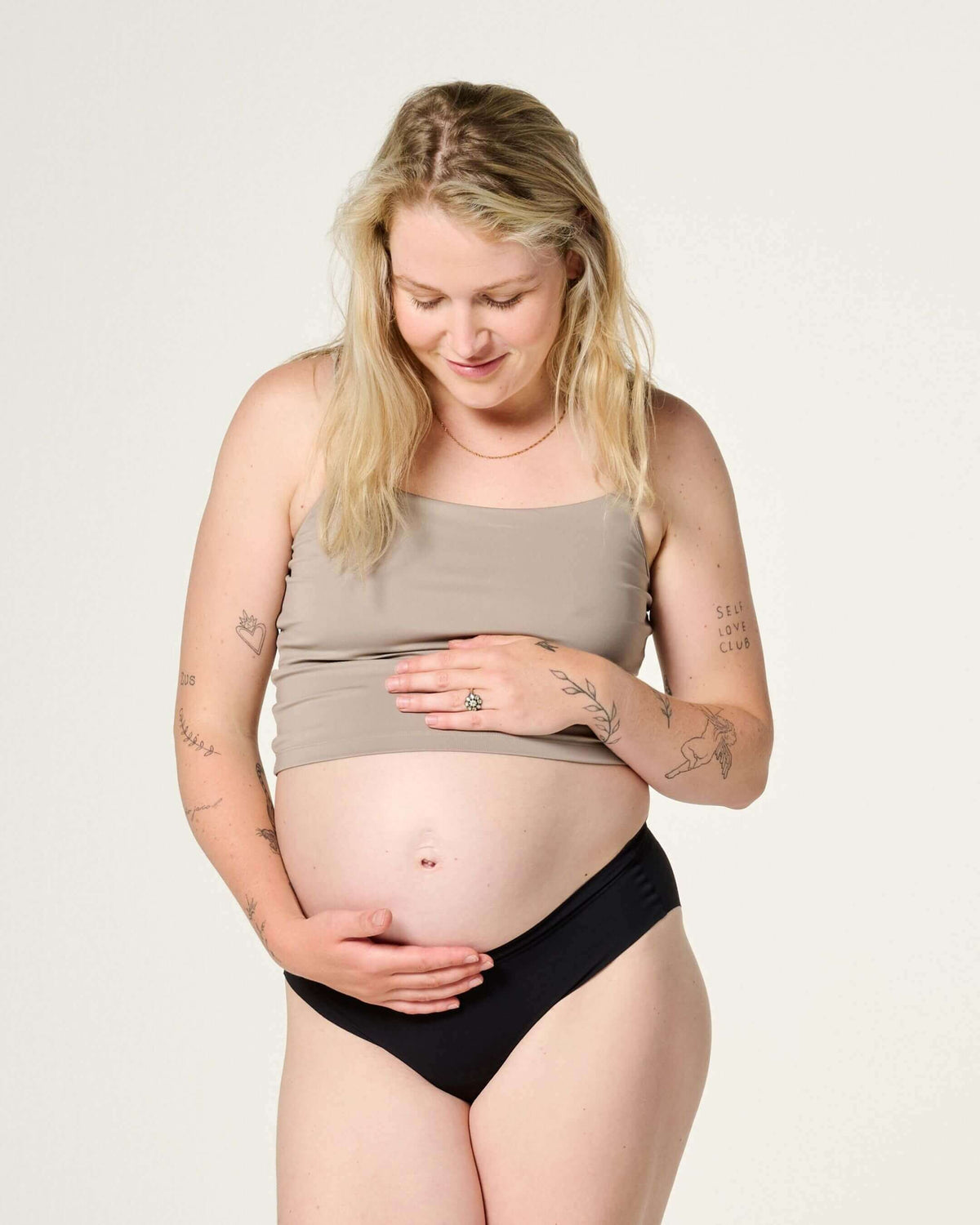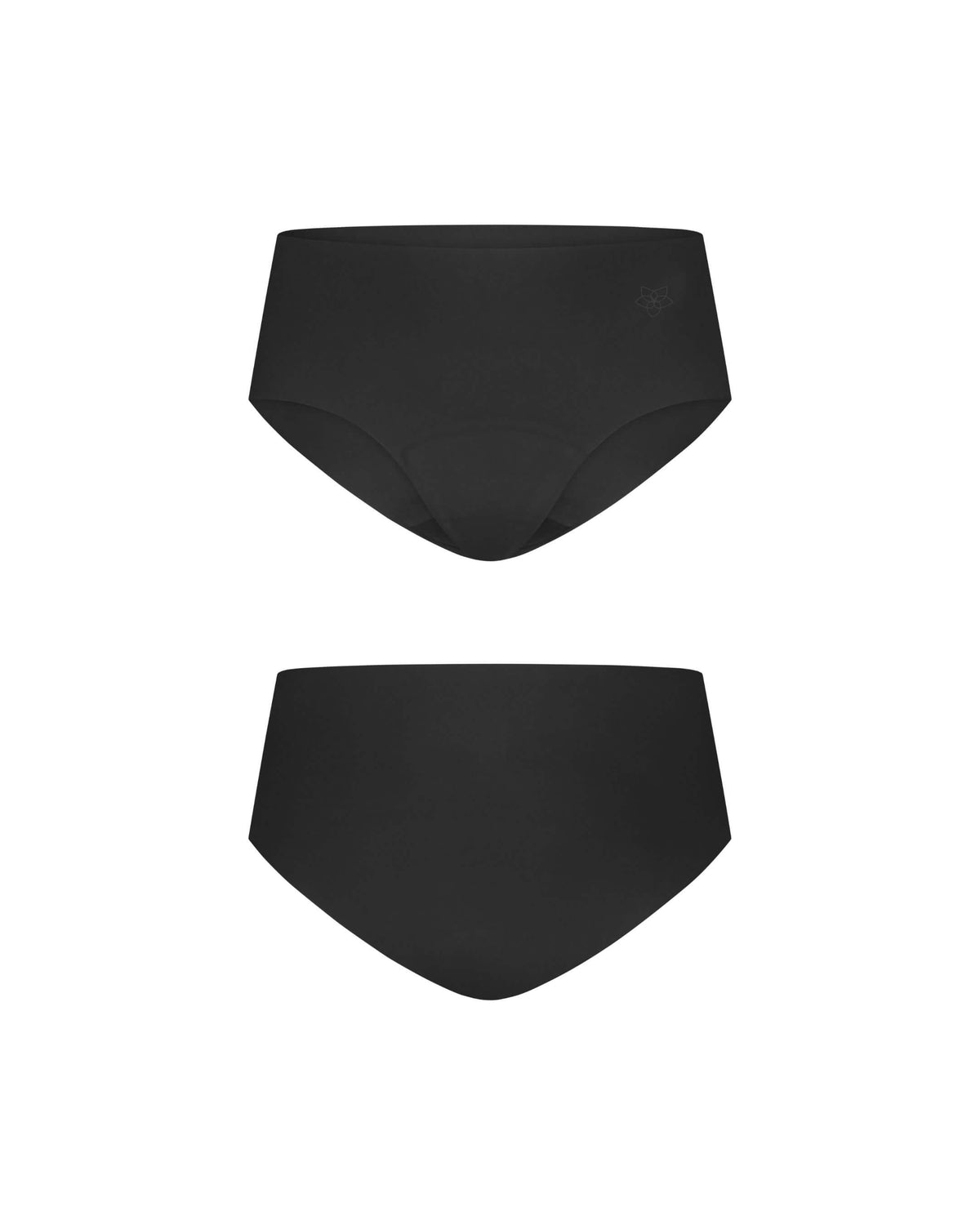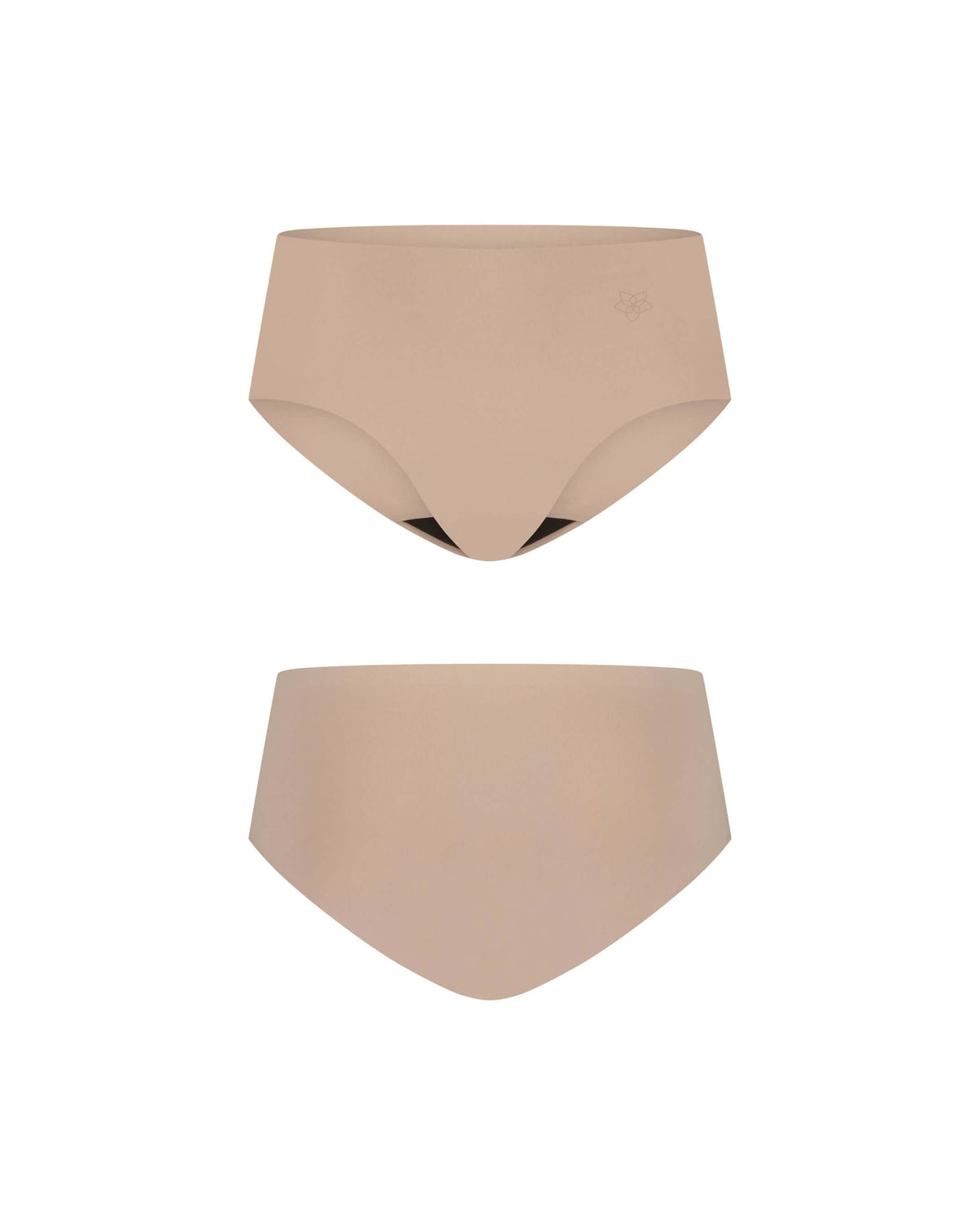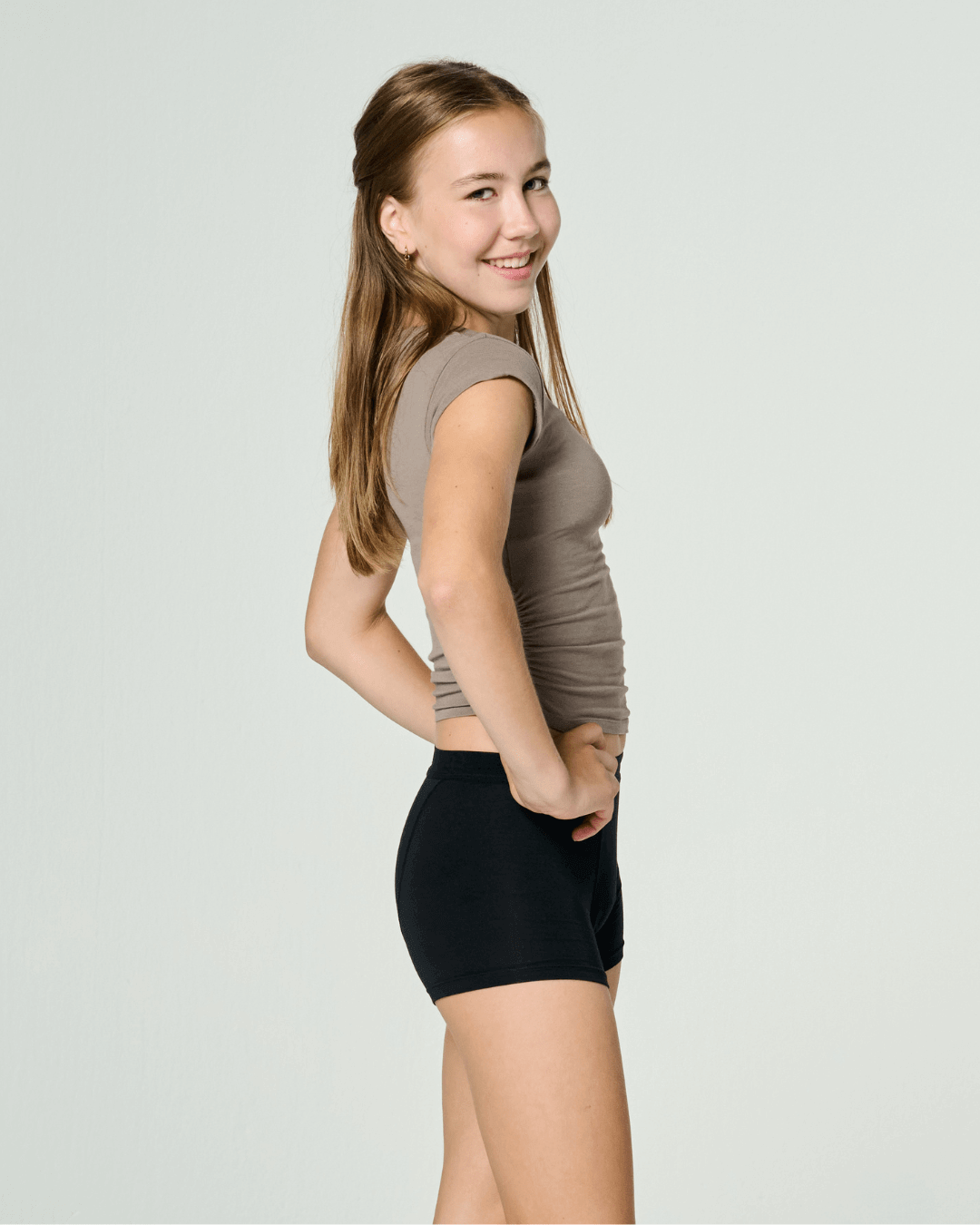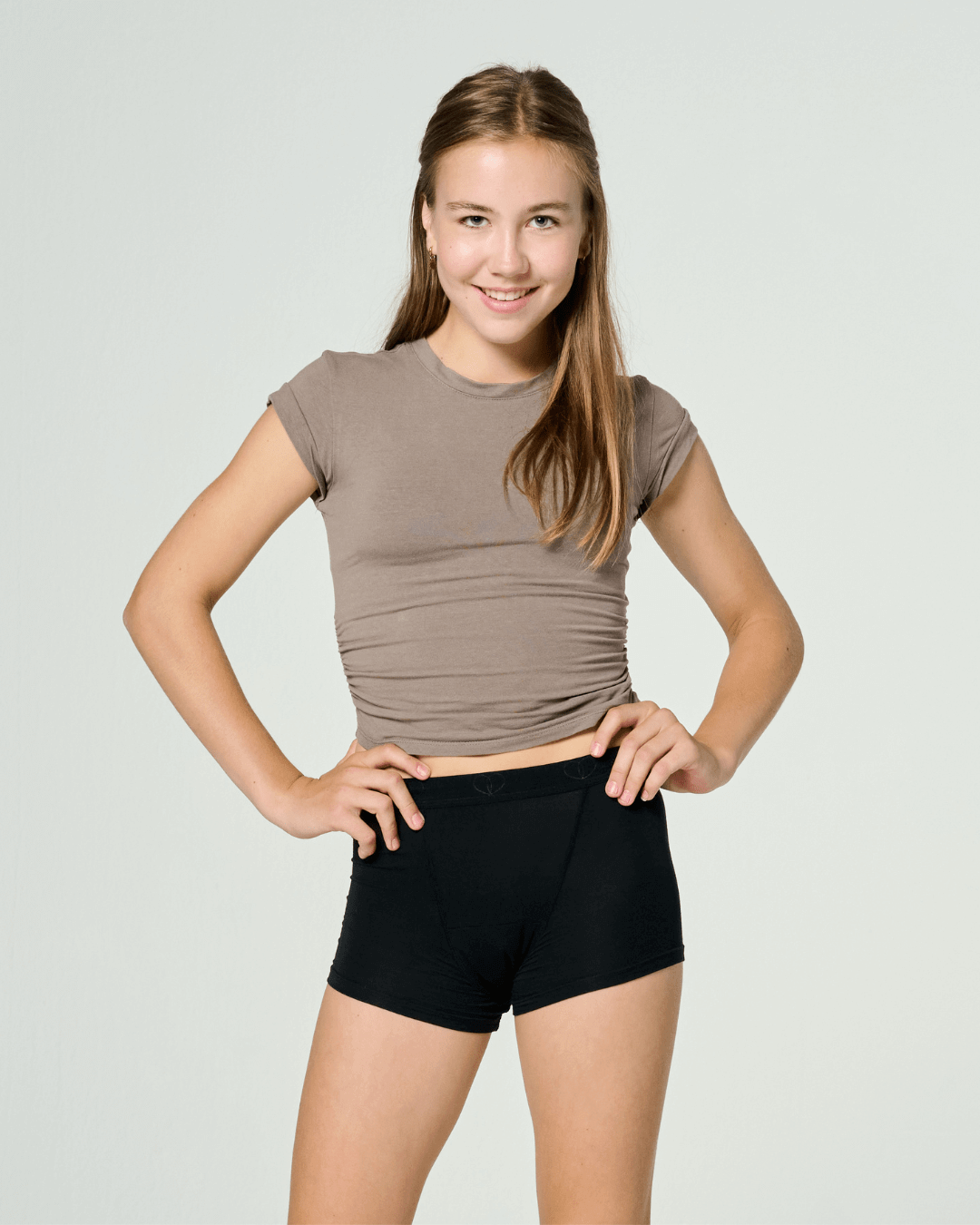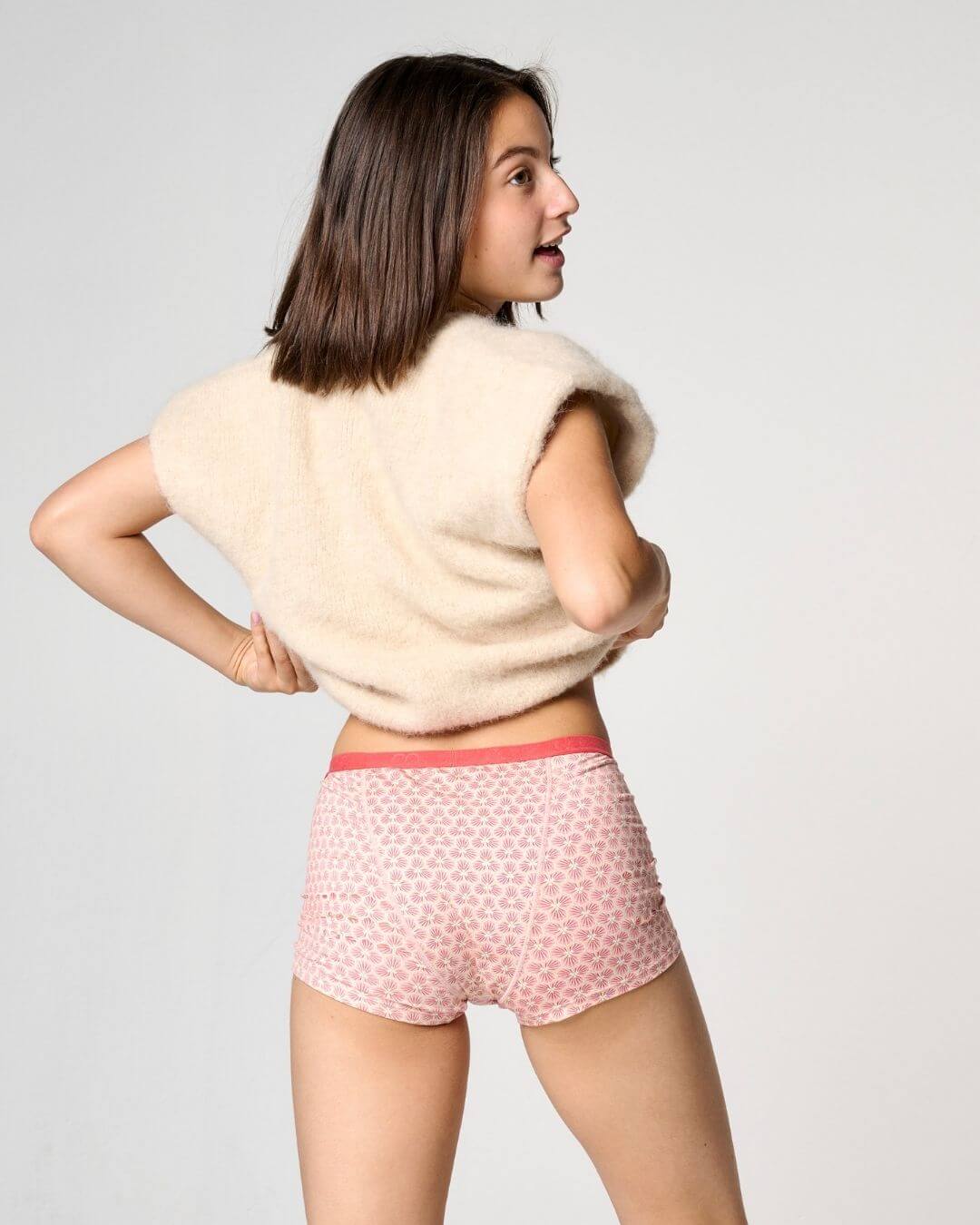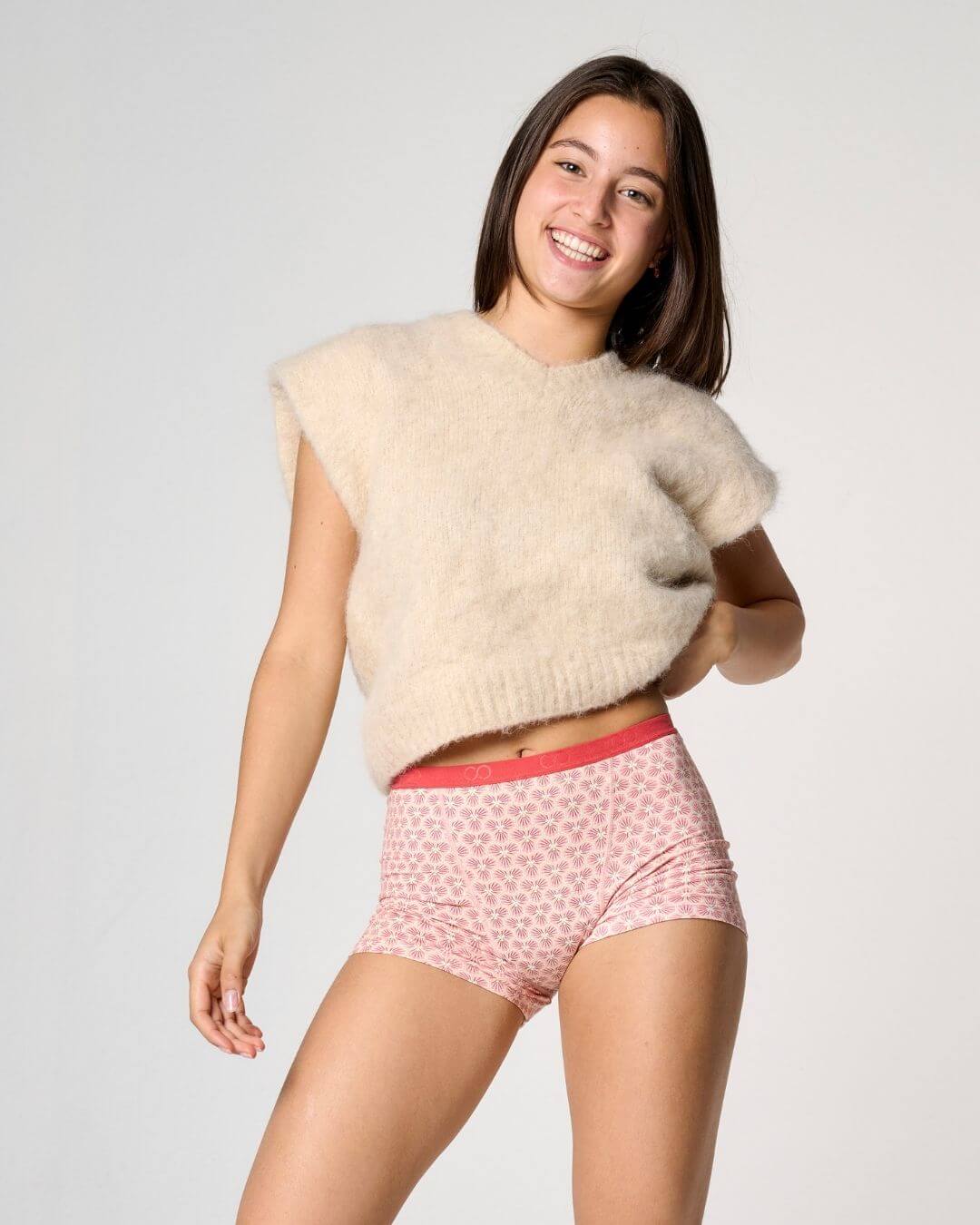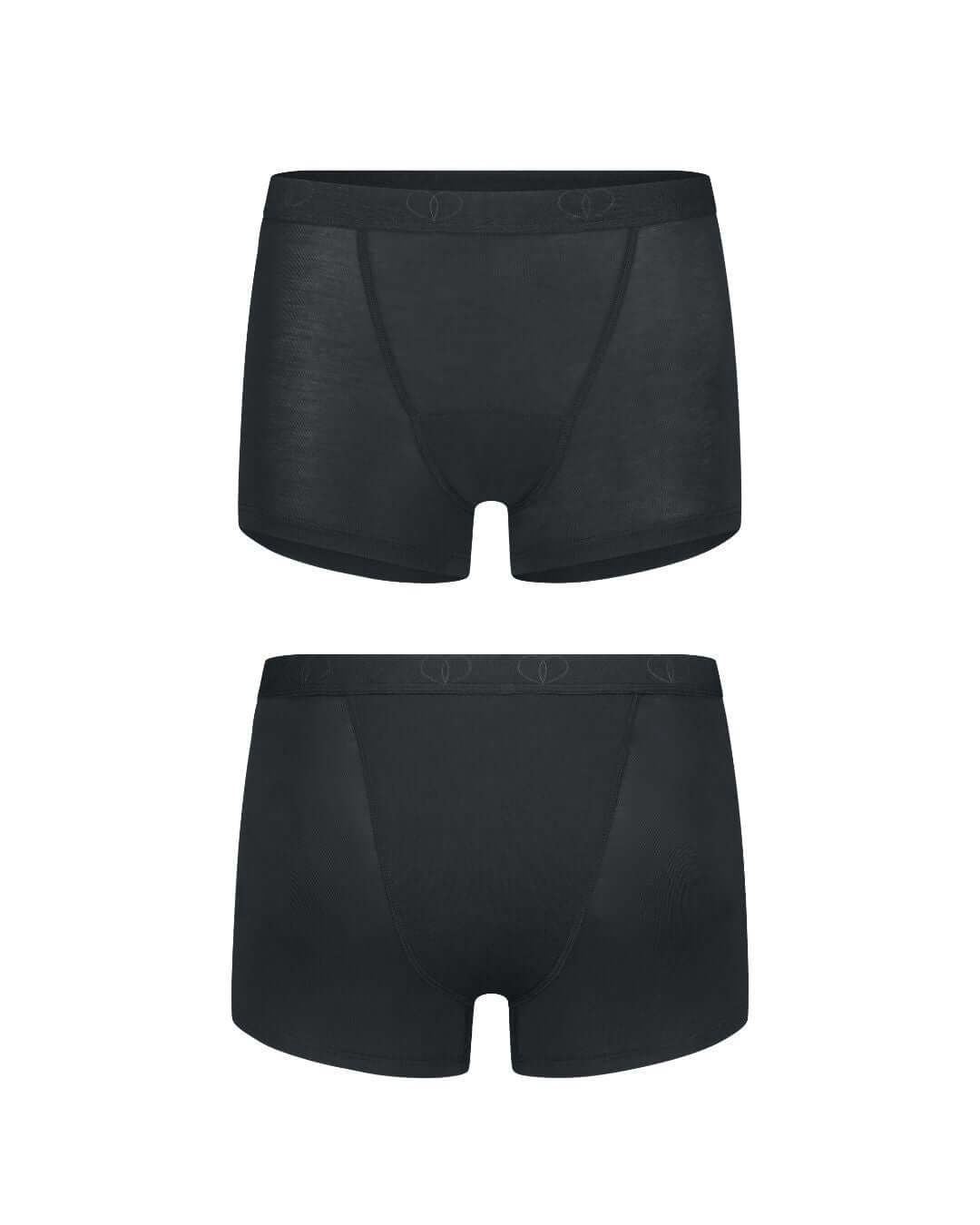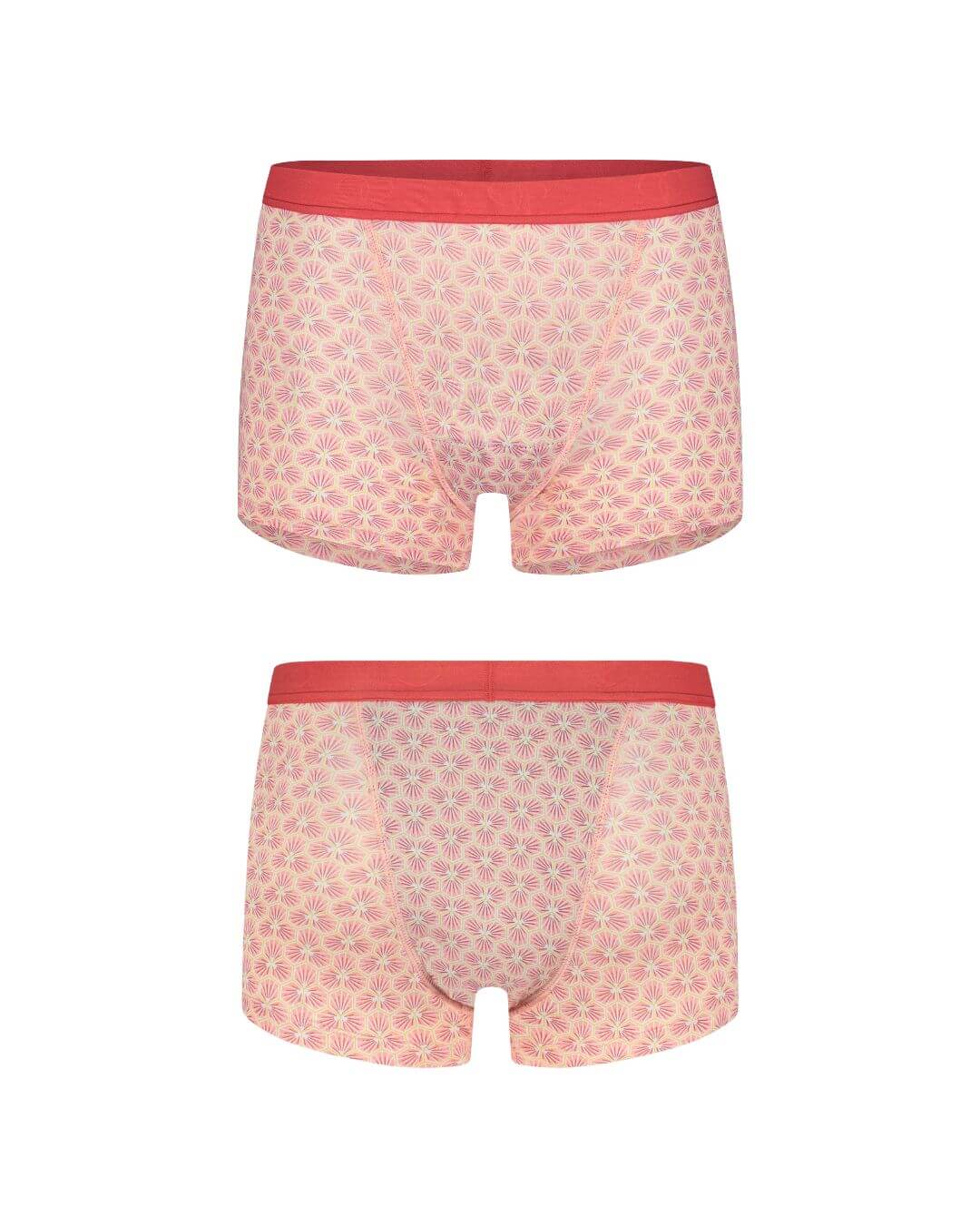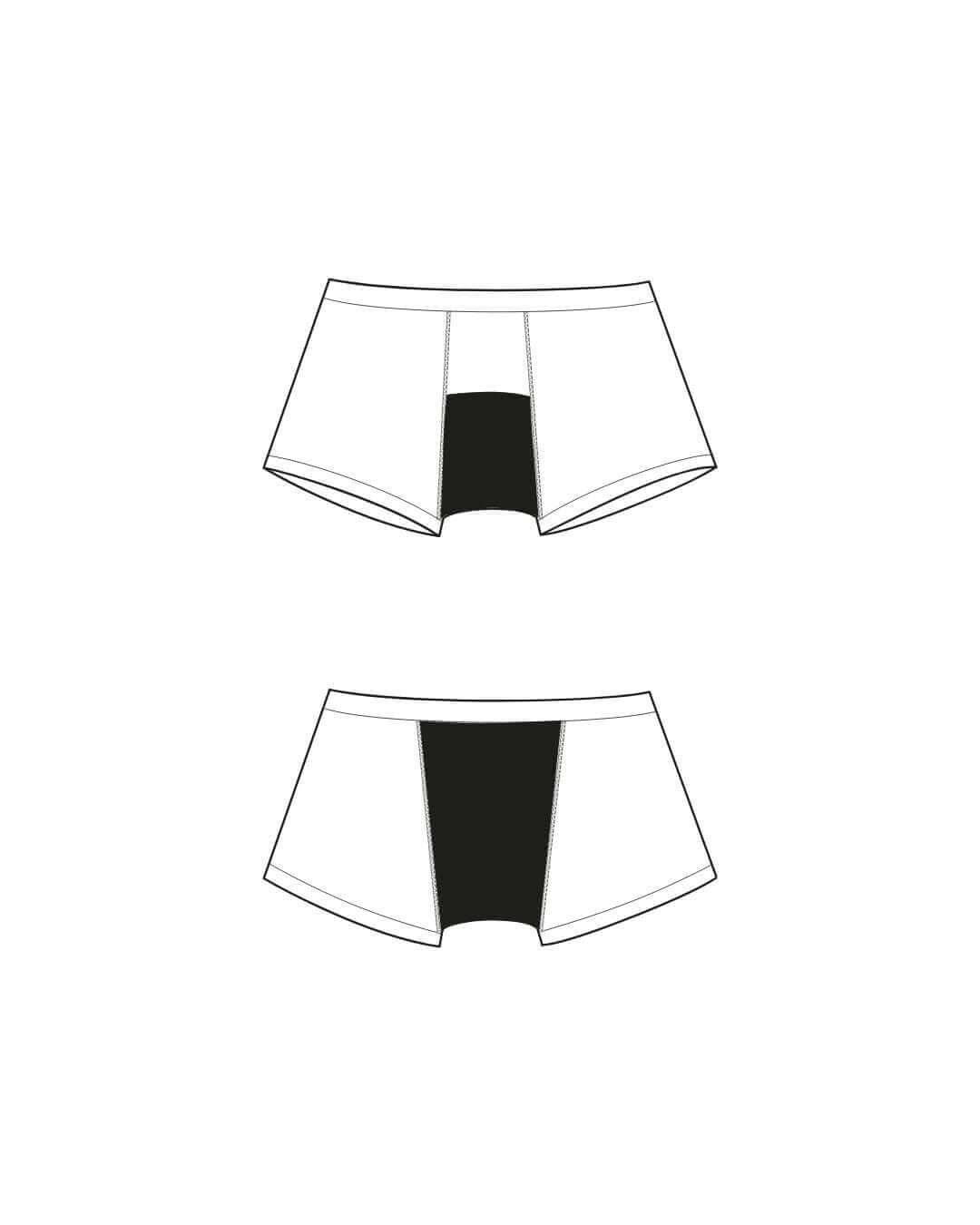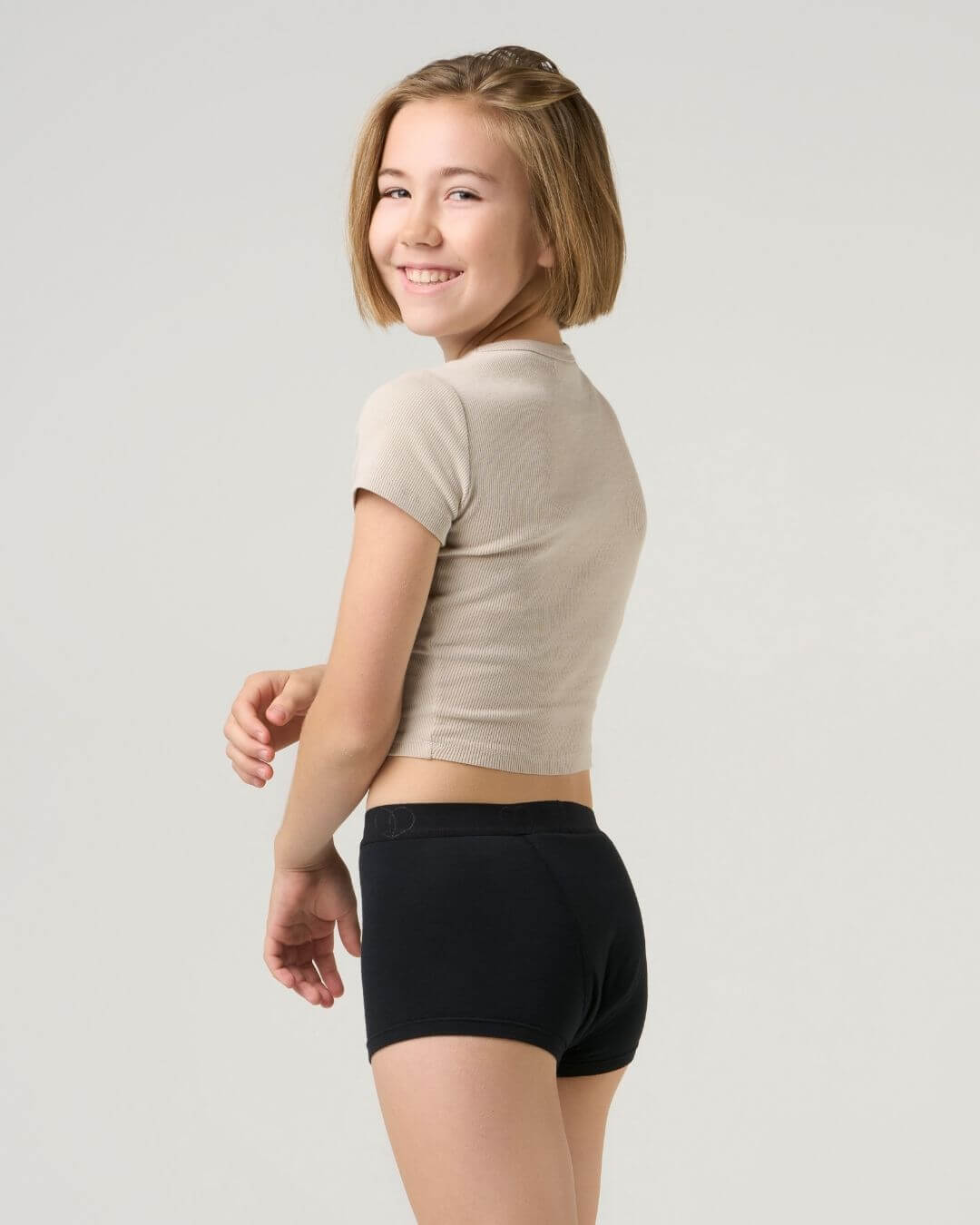Girls are changing the future of menstruation!
All the above insights are confirmation for the new generation of girls to increasingly opt for a sustainable alternative, such as menstrual underwear. In addition to offering many sustainable benefits, menstrual underwear also provides comfort, is more practical and better for the climate.
For a cleaner future, we see the greatest gains among young girls who develop a menstrual routine for the first time. This group of girls is not yet used to using disposable products and is therefore more likely to opt for menstrual underwear. They prefer it for comfort and these teens are deeply committed to a livable planet.
The fact that a significant profit can also be made there is a double blow that they have managed to achieve.
The comfort lies mainly in the fact that you can wear our underwear for 8 hours. You do not experience any problems with leakage or changing disposable products and, for example, having to take everything with you to school. In addition, menstrual underwear is very pleasant during exercise, because it hardly differs from regular underwear.
Let's change the rules, girls!








































